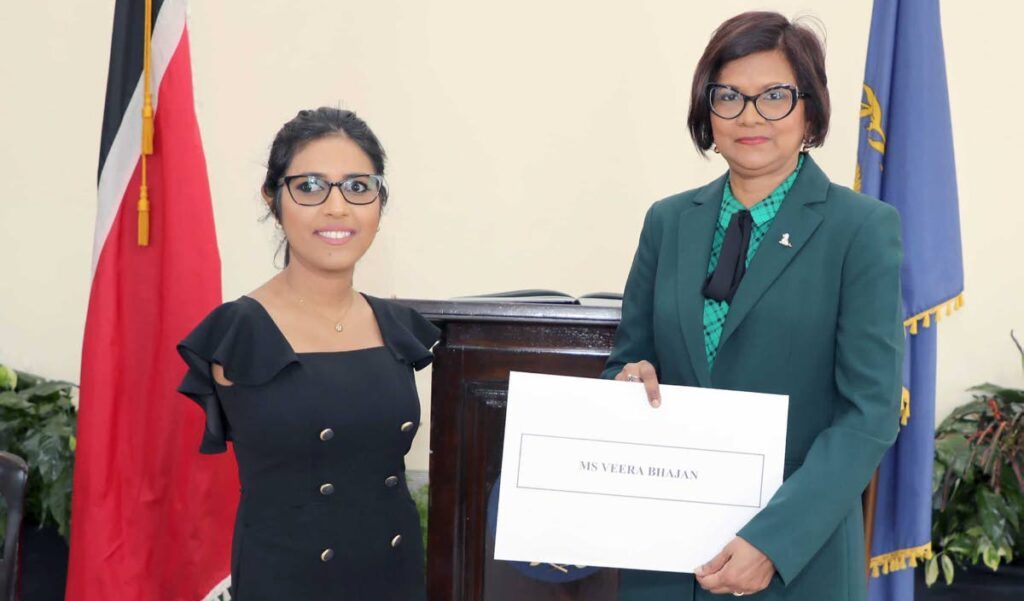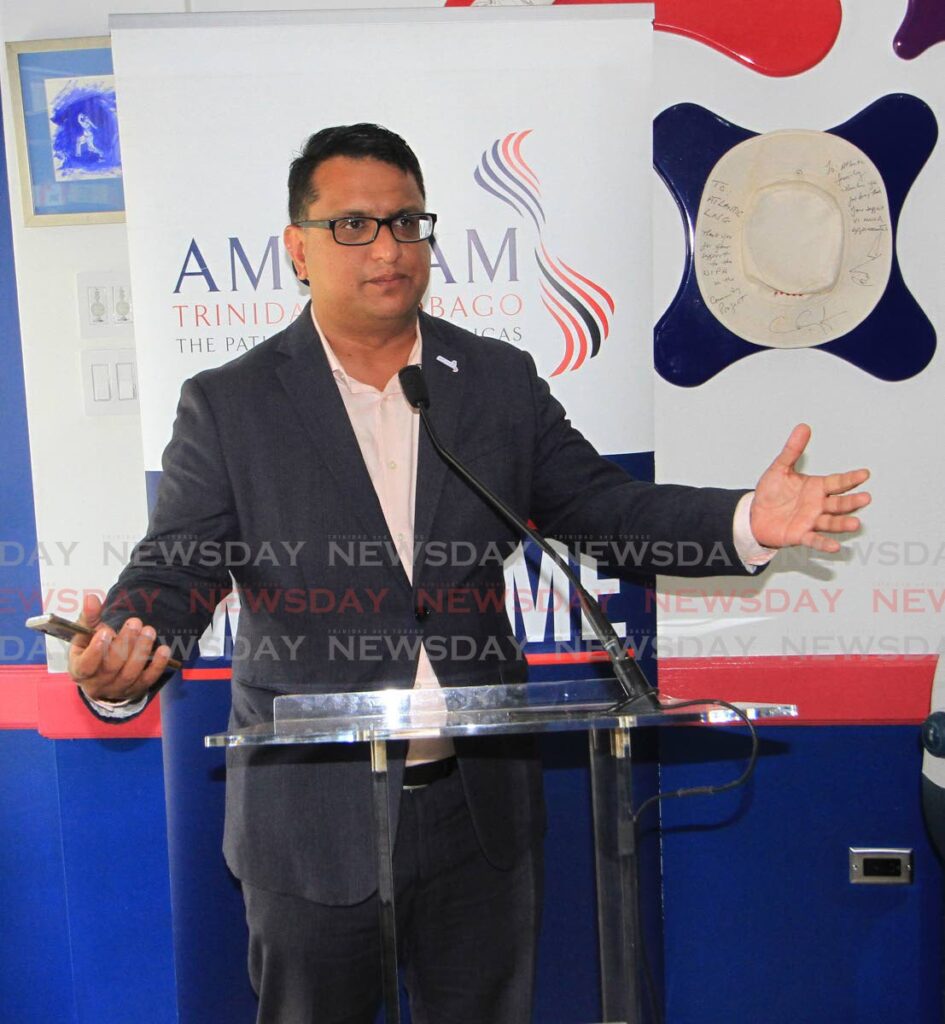Shatter all ceilings: Attorney Veera Bhajan's call to action

"Bias is when a woman speaks in a boardroom, and her words are met with scepticism, while a man says the same thing, and it is praised as brilliance," attorney Veera Bhajan shared at American Chamber of Commerce of TT (AmchamTT) Women's Leadership Conference at Hyatt Regency, Port of Spain, on March 14.
Bhajan’s words challenging systemic challenges and biases, resonated with the over 500 women professionals in the audience.
The 11th annual Women's Leadership Conference served as a platform for AmchamTT’s commitment to diversity, equity and inclusion.
The chamber’s CEO Nirad Tewarie stressed that gender equality is not merely a social issue but a critical economic one.
He urged companies to integrate it into their core structures rather than treating it as a token gesture.
"Gender equality is not just a woman's issue, it is a societal and economic imperative that requires the active participation of everyone, men and women alike," he said, advocating for a shift in mindset and concrete actions to eliminate systemic barriers impeding women's advancement in leadership roles.
Tewarie highlighted AmchamTT's progress in gender representation, including a boardroom comprised of seven women out of 14 members.
He also noted that the chamber’s mentorship programme with the Inter-American Development Bank (IDB) has supported 200 women in advancing their careers.
However, he said these achievements should be seen as milestones, not endpoints, and that sustained collective effort is essential for true progress.
Dismissing common excuses for the lack of gender diversity at the top, Tewarie asserted, "Please do not ever let anyone tell you that the reason their board doesn't have parity, or at least some reasonable effort to get to parity, is because they can't find competent or qualified women. That’s rubbish. We have been doing it now for almost seven, eight years at AmchamTT."
Bhajan, an attorney and lay assessor at the Equal Opportunity Tribunal, delivered the keynote address.
Bhajan’s personal and professional journey has been marked by overcoming significant obstacles.
Born without arms, Bhajan explained she encountered numerous obstacles, not only due to her disability but also because of societal biases that have long underestimated her potential.

She has reportedly been systematically denied opportunities, excluded, silenced and had her qualifications questioned.
Bhajan's appointment to the Equal Opportunity Tribunal was a landmark achievement but not without its challenges.
The Equal Opportunity Commission (EOC) initially sought to block her appointment, citing concerns about her ability to perform the duties of the role.
This sparked a legal battle that went to the Court of Appeal.
Ultimately, the Court of Appeal ruled in Bhajan's favour, affirming her right to serve as a lay assessor.
She hailed the court's decision as a victory for disability rights and a powerful affirmation of the principle of equal opportunity for all.
"I am no stranger to such biases, being systematically denied the opportunity to serve, being excluded and silenced, having my qualifications questioned and my capabilities undermined," Bhajan said.
"The easiest and safer action – to give up, accept, perhaps to walk away quietly, like so many others before me. But I refused to accept defeat because bias does not disappear when ignored.
Injustice does not resolve itself and silence is the oxygen that keeps oppression alive."
Bhajan said the fight for equality was not just about individual battles but also transforming systems that perpetuate discrimination and injustice.
She highlighted the pervasive nature of bias, which often manifests subtly.
"Bias is often insidious. It is institutional. It is systemic. It thrives in whispered doubts, in dismissive glances, in the unspoken belief that certain people do not belong in certain spaces."
Bhajan called for urgent action to dismantle these systemic challenges and biases, urging women to challenge the status quo and refuse to accept limitations imposed upon them by society.
"We need to dismantle these systems – these biases and barriers – deliberately and with urgency.
"There is a strong call for all of us to recognize that the fight for equality is not just about individual battles; it is about transforming the systems that perpetuate discrimination and injustice."
Bhajan also addressed the internal barriers that sometimes hold women back, such as self-doubt and the tendency to "play small."
She encouraged women to recognize their worth and potential and to step into leadership roles with confidence and courage.
"For many of us, these thoughts are not just fleeting moments; they are persistent, nagging beliefs that undermine our sense of worth, despite our achievements," she said.
"For years I adopted a habit, a pattern, a mindset that held me back from fully embracing my potential. Playing small."
Bhajan urged women to reject the notion that they are meant to shrink themselves and instead embrace their unique brilliance and contribute their gifts to the world.
"We are not here to shrink ourselves. We are not here to play small in a world that needs our gifts, our perspective and our unique brilliance," she declared.
Bhajan also focused on the importance of self-led leadership, which she defined as taking full ownership of one's life, choices and actions.
She encouraged women to trust their wisdom and to make choices that align with their values and vision.
"When you lead from a place of empowerment, you trust yourself to make decisions that align with your values and your vision," she said.
"You recognise that you are capable, worthy, and deserving of success, and you act in ways that reflect that deep, unshakable belief in your own power."
Bhajan's address was a call to action, urging women to shatter ceilings, dismantle systemic barriers and embrace their full potential as leaders.

Comments
"Shatter all ceilings: Attorney Veera Bhajan’s call to action"